As the legend goes, when he and his two brothers were brought to Baroda, for the British to assess them and let the queen adopt one of them, the queen herself privately asked each of them a question, "Why do you think you have been brought to Baroda?" The elder said he must have been brought to see Baroda. The younger was unable to answer this question; but it is said that the middle brother, Gopalrao, promptly replied, "I have come here to rule!" He went on to be coronated as the King of Baroda – Maharaja Sayajirao III, on 27th May 1875.
Maharaja Sayajirao Gaikwad III of Baroda needs no introduction. He was a superiorly benevolent king to have ruled in the later phases of the British Raj in India. The stories of his administrative brilliance, competitive, taunting arrogance towards the British and his keen interest in people’s welfare are well known. He is counted among the best of best on all three criteria of intelligence, acumen and efficiency. He is truly one of the most significant makers of the modern India, in thought and in deed.
Sayajirao was born into a Maratha family in the village of Kavlana in Malegaon taluka of Nashik district, as Gopalrao Gaekwad, second son of Kashirao Bhikajirao (Dada Sahib) Gaekwad (1832–1877) and Ummabai. When Baroda’s throne became vacant with no male heir to claim the helm, he was selected by the British and accordingly adopted by the widowed queen of Baroda- Maharani Jamnabai. As the legend goes, when he and his two brothers were brought to Baroda, for the British to assess them and let the queen adopt one of them, the queen herself privately asked each of them a question, "Why do you think you have been brought to Baroda?" The elder said he must have been brought to see Baroda. The younger was unable to answer this question; but it is said that the middle brother, Gopalrao, promptly replied, "I have come here to rule." He went on to be coronated as the King of Baroda – Maharaja Sayajirao III, on 27th May 1875. Yesterday marked the beginning of 150th year of his coronation. There would certainly be year long celebration of his wide range of contributions to Indian society during his stupendous tenure of 64 years.
Baba Bhand has been working on the three fronts of writing, editing and publishing for the past decade to give new light to the thoughts and work of Maharaja Sayajirao III of Baroda. Bhand has extensively researched by unearthing the enormous amount of information from the Maharaja’s royal records, speeches, edicts, literature and innumerable correspondences – both official and personal. So far, more than 225 books have been published under his leadership, with more books on the way. I have dipped into the ocean of information of this very book series for bringing out some pearls of Maharaja Sayajirao’s ingenuity.
It is practically impossible even to take a cursory glance at all of Maharaja Sayajirao’s life’s work in one piece of writing. We will try to look at some the most prominent reforms he brought about, and few salient examples of his benevolent and explicitly recorded edits (royal orders).
Some of the reforms introduced by Maharaja Sayajirao were so unique that even the British had not thought of them, in spite of having exposure to much more “progress” and having ruled over India for 150 years! But this path of social reforms was not paved with velvet, it was a rather difficult one with dangers rearing its head at every turn. It was not for the faint-hearted. At every stage there was discouragement and disappointment. But he was brave enough to tread the path unswervingly; because in his heart, he only had the best interest of his people – the common people under his governance. He knew that for every social problem there must be a solution and that solution is none other than chipping at the problem, again and again, and yet again.
Sayajirao's progressive reforms met with stiff opposition from the British as well as his own statesmen and even common people, who were the beneficiaries. In such cases he would often play the devil’s advocate and challenge his own thoughts, approach and actions. Sometimes he would brainstorm, second guess his moves and reverse his decisions. But he never lost sight of his ultimate goal - progressive welfare for his people. He was positively convinced that he had taken the right course. He was unflinching in his courage and unwavering in his resistance to adversity, convincing his subjects that one day they will surely win, and more important, they will realize that the reforms have benefitted them.
He kept the fight on. He implemented many social reforms one after the other over a period of 64 years. And kept a meticulous record of each and every one of them. Let’s consider some highlights.
By the law of his land, child marriage was banned, remarriage was allowed for widows, bigamy / polygamy was made illegal, women's education was encouraged.
He started a library in every village or group of villages with a population of 5000. The mobile library movement started.
The ornate language people used / were expected to speak in court, was very different from the language his people spoke in their lives. Sayajirao made sure that Gujarati replaced English as the official language of the courts, but it was not enough for him. His educational reforms emerged as a result of frustration in the face of this bitter truth. He struck at the problem from a different angle. With great courage, he ran a bold experiment in one district of his state. Primary education was made compulsory and free for all children of school-going age, and parents who refused to send their children to school were fined. Ironically, some people CHOSE to pay the fine and keep their children away from the ‘modern’ school. Despite this disillusionment, he did not give up. He surveyed, reviewed and analysed the pilot run of this experiment deeply. When he was convinced and satisfied, it was introduced throughout the State in 1904.
Financial incentives were granted to large villages in order to establish water supply schemes, mainly for drinking water. The benefits included concessions in management of sewage water as well, and more. A village, not even 15 miles from Baroda, rejected the scheme on the ridiculous pretext that it would cause harm to the peculiar way in which their wives and daughters walked! The same village later begged the government to implement the water supply scheme and was even ready to spend money for it.
Perhaps, Sayajirao's efforts for the abolition of untouchability in his state can be considered the biggest and most important social reform he brought to reality. Few people know that Sayajirao advocated eradication of untouchability many years before Gandhiji made it his mission after his return from South Africa. The first step he took in this direction was to set up schools for untouchables only, then to open the doors of all Hindu temples to them and then together they ran schools where bright students were given scholarships. Among those bright minds one was none other than Dr. Babasaheb Ambedkar, who later became a very strong pillar of Indian society, known to the world as the architect of the Indian Constitution. What the untouchables of Baroda got then, the Harijans of independent India got much later or even, are still to receive.
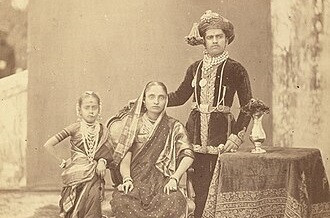 (Maharaja Sayajirao with his adoptive mother Maharani Jamnabai and his sister Tarabai)
(Maharaja Sayajirao with his adoptive mother Maharani Jamnabai and his sister Tarabai)
Watch Part 1 of Baba Bhand's Interview about his research about Maharaja Sayajirao Gaikwad here
Sayajirao put a lot of emphasis on clear, accurate, precise, transparent and timely documentation and record keeping – a trait rarely visible in Indian history. He understood the importance of archiving correspondence, both official and personal. Let’s take a look at some of his edicts to understand both his care for welfare and his precision of administration. All these orders are from the first six years after the Maharaja himself started looking after the administration. and corrected the dark accounts of his kingdom by introducing precise documentation and transparent book-keeping.
- While determining the rent on the farmer, the last price that can be collected from him should be collected, but he should be left with enough means to survive.
- Day by day, the need to build wide and convenient roads in the city is being felt increasingly. It is important for people to have good roads to travel. Make a list of which routes are to be made for it and decide the appropriate order in it. Also decide how much to spend on it every year.
- The value of education given in a school depends on the qualification of the teacher. That is why, appoint such good teachers. See that the lowest backward section of the society matures into a better state. Open thirty new schools every year. Sixty thousand rupees will be granted for the building. There should be a museum of curious things in the school. Special attention should be paid towards the moral and physical education of the students. Publish a new reading series for the students. Translate the best texts from English language. Establish reading rooms in every village.
- The government should not make any such general rules which would interfere with the freedom of the people.
- Nowadays, the Bahujan community is in a state of ignorance and the government should provide help and encouragement to bring it to a higher status. It is considered the duty of the king in the eastern countries to maintain the social condition of the people. For this reason, the princely states here are also given social status. We should consider it our duty to pay attention to the questions.
- For social reform, observe the people with a curious eye. How much poverty is there in which class? What is their occupation? Do they get enough food to protect their body and stay healthy? This should be observed. What measures should be taken on this? You can organize an event and inspect it.
- People of different religions live here. Everyone has the right to behave according to their religion. The feeling of antagonism between the people of two religions is a roadblock on the path to peaceful progress of the country. The rulers have to root out this deadly feeling. More attention should be paid to do this.
- We find it appropriate to do charity but no one should donate thoughtlessly. Lakhs of rupees are spent on endowments in the palace. Efforts should be made to define virtuous charity and further limit the expenditure.
- A lot of expenditure is made by women in the name of charity and religion. There should be a strong ban on it.
- Education is a great work of charity. Only the one who is successful in this work will be considered as the true leader of the country. As the Dharma-pita (father by duty and law) of his subjects, the king should care for moral and social welfare of his subjects. In addition their material happiness, attention must be paid towards intellectual improvement.
- Any person presents his thoughts better in his own language i.e. in the native language rather than in a foreign language. Therefore, arrangements should be made to conduct correspondence regarding government work in the local language only.
- Many a times old papers are useful to the state. Therefore, the government squad should be well arranged but copies of important papers should also be kept.
- Sir, there should not be any unnecessary expenditure regarding the Official Rides / Vehicles. Pay attention to how the expenditure can be reduced. If any unnecessary expenditure is incurred then the king does not like it and it also does not benefit the people. The officials should use their intelligence and be careful in this matter.
- State’s expenses should be managed in such a way that some amount should be saved as balance every year. Generally, the amount equal to the income of four years should be kept as the corpus fund in the state, twenty lakh rupees must be saved every year, In case of a disaster like famine, it would come in handy.
- If the King is found to be guilty of violating one of his edicts and it is not agreeable; or has ordered something that may be harmful rather than helpful to people, the statesmen should the King clearly.
- Royal Orders should always be in writing. It should be signed by the King or the signing authority.
- Judicial Mechanisms have been set up for the people to get justice for their complaints. It takes some time to investigate and adjudge. There is no harm in taking that much time but do not take more time than the proper time. People should get real justice quickly at little expense. (Gaikwad, Hukum, 1936, 30)
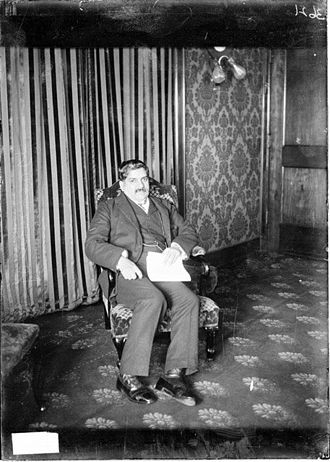 (Maharaja Sayajirao Gaikwad in Chicago - 1906)
(Maharaja Sayajirao Gaikwad in Chicago - 1906)
As Sayajirao grew older and his social reforms started growing deep roots, the British began to resent him. It culminated in his open and back door dalliances with the leaders of the Congress party and the people in India and abroad who were perceived as enemies of the British state. There is sufficient circumstantial evidence to believe that he might have provided substantial financial support to the Congress Party in India and to the adversaries of the British Empire abroad. When he was repeatedly cautioned by the British not to meet such people, he asked the British to give him a list of whom he should not meet. He took advantage of this list for himself. He replied two of these men were his moneylenders, two others were his personal goldsmiths, some others were his old friends, and the rest were people of his state who came to pay their respects to him. In this work he was also supported by his wife Her Highness Chimanabai II, who used to meet these people in Europe especially in Switzerland. Despite this, the pressure continued to increase and he was harassed for even the smallest of things. The Resident did not allow him to go abroad even for treatment of rheumatism. The harassment notwithstanding, he never lost sight of his life’s mission until the end.
He was a great patron of arts and culture. He had great respect for all kinds of knowledge and preachings of religions. He presided over the second World Parliament of Religions and delivered the opening address there on August 27, 1933. He left the audiences spellbound with his understanding of religions of the world and their core values.
His childhood in the village had a lot to do with his commitment to social reforms. He must have seen the poverty, the suffering, the lack of educational privileges and probably the treatment of the untouchables by the people in the village. And when the time came, he rose to the occasion and made a serious effort to change things for the better. People mattered to him. He cared.
In conclusion I’d like to salute Maharaja Sayajirao Gaikwad III of Baroda by quoting Mahakavi Kalidasa, the renowned Sanskrit poet, from his celebrated literary work, The Raghuvamsham –
प्रजानां विनयाधानाद्रक्षणाद्भरणादपि।
स पिता पितरस्तासां केवलं जन्महेतवः॥ (रघुवंश १.२४)
He (Maharaja Sayajirao Gaikwad III of Baroda) cared so deeply for their education, their protection and their upbringing, that he truly became their father, and their own parents only gave birth them.
Rucha Mulay
kartavyasadhana@gmail.com
(Assistant Editor - English at Kartavya, Sadhana)
Tags: baroda sayajirao gaikwad sayajirao gaikwad baba bhand 150 years Load More Tags

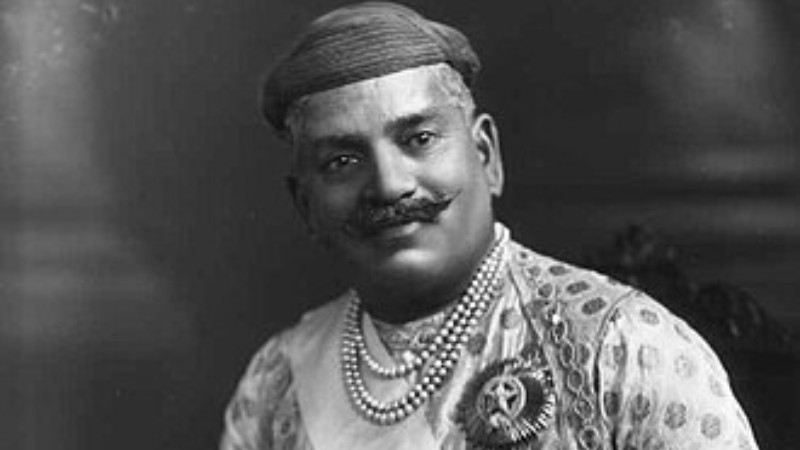


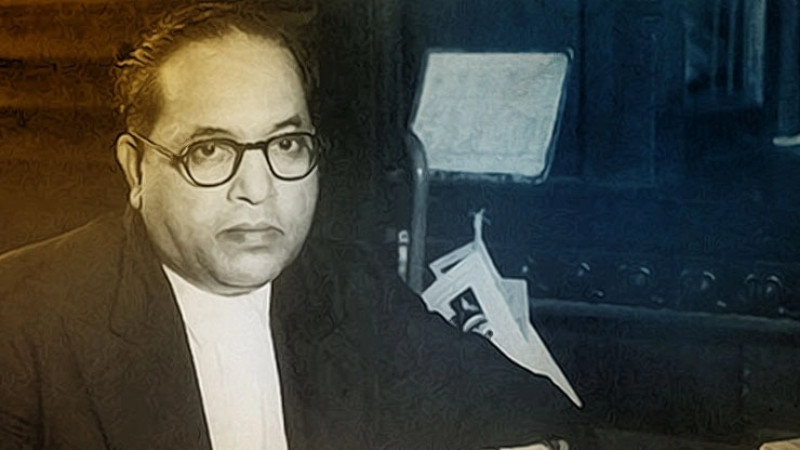
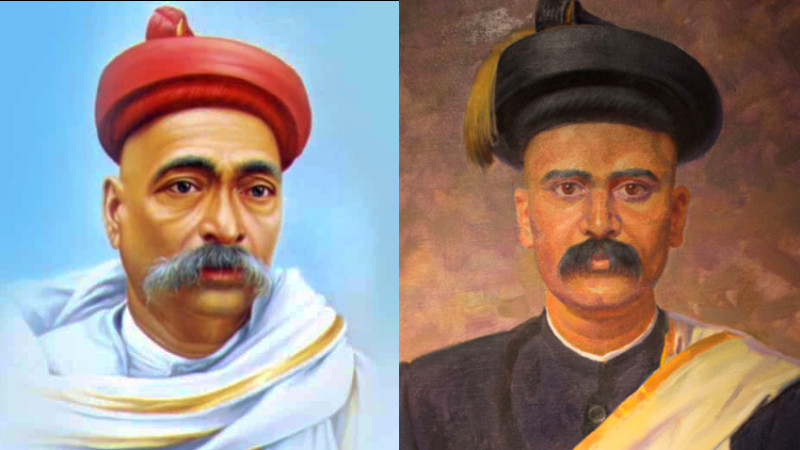
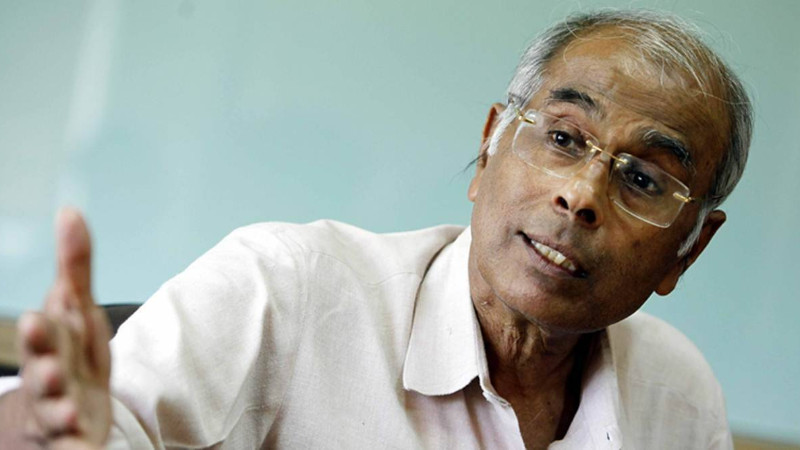
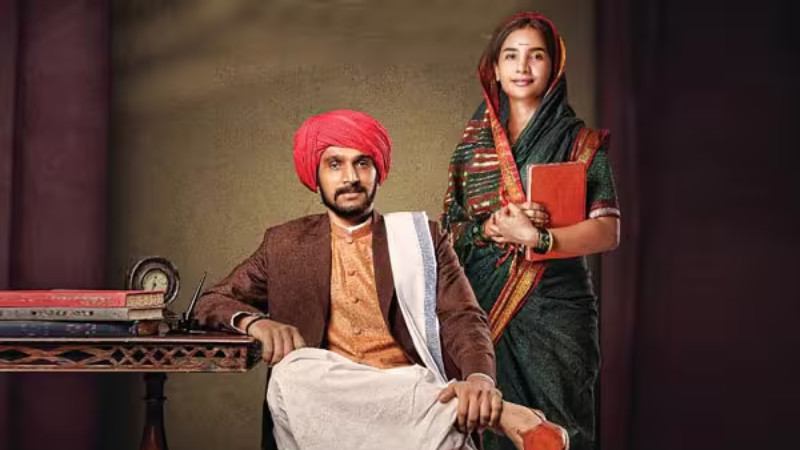
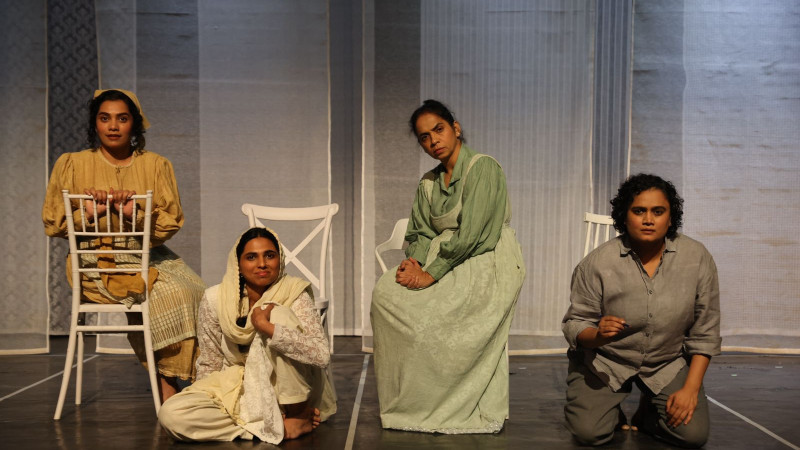
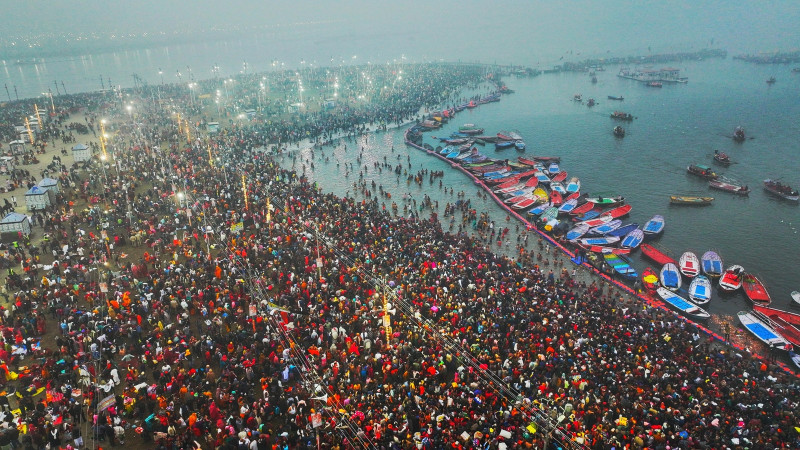































Add Comment